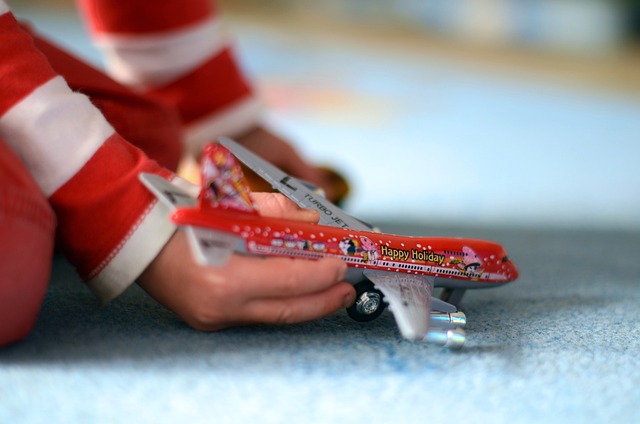Flying with Children
Comfort
Comfort is key! Make sure your child is dressed in cosy clothes for the flight, and pack extra outfits if needed.
Schedule
Align flight times with nap or bedtimes to minimize stress and exhaustion.
Duration
One of the biggest challenges with children is that they have no real understanding of time. This can be particularly challenging during long flights.

Entertainment
It’s always a good idea to pack plenty of activities, games, and toys to keep your little ones entertained.
Food and Drink
Don’t forget to pack healthy munchies and drinks for your child – it’s always a smart idea to stay hydrated while flying.
Familiarity
Pack a favourite stuffed animal, a blanket, a special toy, or any other item your child finds comforting. This can provide a sense of security and familiarity in an unfamiliar place.
Helpful tips to make flying with children a easier
Flights
- Direct flights are in general more expensive, but they can be less stressful for small children. When searching for flights, do some research on the airline’s website to see what they can offer your children.
- If you travel as a family, consider paying for pre-booked seats. It is not guaranteed that you will sit together when you check in without pre-booked seats. If there is a change in the type of plane shortly before departure, then you are only guaranteed your seat category (Window, Aisle, Extra legroom) and not any specific seat. If they cannot offer your category seat, you can claim money back from the airline.
- Do some research on what services the airline can offer you. Do they offer strollers at the airport, facilities to warm bottles, baby changing stations, bassinets, kids entertainment, kids meals, special seats, priority boarding etc. Some airlines offer spare nappies for emergencies.
- Compare airlines to find the best luggage allowance options. Also, make sure you know from what age a child will pay for a full seat on the airline.
Unaccompanied Minors
Depending on their age, children may fly unaccompanied. The ages may vary depending on the airline.
As an example from Lufthansa, children between 5 and 11 may only fly if they are travelling with someone older than 12, or are making of the Lufthansa care service.
The Lufthansa care service can also be booked by parents for unaccompanied children from the age of 12 up to a maximum of 17 years. This ensures that the child receives support, especially in the event of a disruption to their flight, such as a delay or cancellation.
Tickets for unaccompanied children cannot be booked online, only through service centres.
Consider direct flights to make it easer for the child
Luggage
- Organise your hand luggage in such a way that you can easily find items you or the children might need during the flight.
- Confirm with the airline what baggage regulations applies to infants and small children. Hand luggage for infants are sometimes included in the adult allowance.
- If your child can bring hand luggage with them, it might be a good idea to have it as a small backpack that they can put under the seat in front of them. This way you don’t have to open the overhead locker each time someone wants something from their bag.
Comfort on board
- Ensuring your child is comfortable during the flight by dressing them in cosy clothes and bringing a favourite blanket or pillow can make all the difference.
- Small children tend to cry during take-off and landing, due to the change in cabin pressure. To help elevate the pain in their ears, give them something to suck on like a lollypop or something to chew on. If they are old enough you can consider buying them earplugs that helps equalising the air pressure in their ears. An example is SANOHRA Fly for Kids
- Bring along a comforting toy and something to keep them busy like colouring in with crayons or board games. There are movies and games on most long-haul flights
- If so inclined, talk to your doctor about something you can give them to help them calm down and sleep. Remember they are swept up in the excitement and have no concept of how long the flight is, and my personal opinion is, that it is better to have something to help them relax and make the journey better for them.
- It can be cold inside the plane, so always pack in some warm clothes.
- During taxi, take-off, landing and turbulence, passengers, including children must wear a safety belt. Prepare your child for this beforehand.
- Babies may not use the bassinets during taxi, take-off, landing and turbulent weather conditions.
- If the airline allows it consider taking a carrier along. If they can’t sleep or get sick it helps to put them in it and walk up and down the aisle. A good example is the Manduca Babytrage
- Some airlines allow the use of child restrain systems, child car seats or baby carriers to make your child comfortable and secure. Check beforehand with your airline if whether your child restraint system is suitable. Example information from Lufthansa – “Child restraint systems that consist only of belts attached over and/or around the backrest of the seat cannot be used on board. The child restraint system must only be attached using the seat’s lap belt. There is no possibility of attaching ISOFIX equipment.”
Entertainment
- One of the most important things to consider is packing enough snacks and entertainment for your kids.
- Bring plenty of age-appropriate books, toys, and games.
- Many parents suggested stickers to keep them busy, just make sure if they stick it to the tray table, they can be easily removed.
- Water reveal drawing – Painting for kids without spills. You can search online for “Wassermalbuch” Here are examples on Amazon.
- Avoid toys with small removable parts. When it falls on the ground you will not be able to search for it, and this might cause distress to your child.
- Carrying a tablet or portable DVD player with your kids’ favourite movies or TV shows is also a great idea.
Food and drinks
- Find out beforehand if the airline offers child-friendly dishes.
- There are limitations on the amount of liquid you can bring on board. No more than 100 ml per container is allowed, with a maximum total of 1 litre per person. This does not apply to baby formula, toddler drinks or food. Confirm with your airline on what is allowed
- The food service usually starts as soon as cruising altitude is reached. The staff will then start to prepare the meals and it can take up to an hour after take-off before everybody is served a meal.
- Pack healthy snacks that are easy to serve. A melted chocolate can be a real problem. Pre-pack the snacks in sealable containers to store leftovers for later.
At the airport/transit
- Plan ahead to make sure you have all the documentation ready as needed. It can be stressful to search for passports while holding a child in your arms.
- The standard workflow at an airport is: Arrival, check-in and luggage drop, security, passport control and then going to your gate, followed by boarding. Plan for each of these, know what you will need, and what you can expect from your children, and how to make it easier for them. Things to consider are for example, whether they can do the security screening with you, whether they will be able to walk to the boarding gate or whether you will need a stroller, do you foresee any situation that can cause your child anxiety, and how will you handle it.
- Pack hand luggage, backpacks and purses efficiently, remember you will have your hands full, literally.
- It is easier to travel with another adult like your partner or a friend, but if you do need to travel alone with children, you need to be organised and well prepared.
- Find out beforehand whether the airport offers assistance for parents, for example, strollers, family-friendly restaurants, family restrooms.
- Plan enough transit time, but also not too long. Remember children walk slower than adults and as soon as you rush them they get anxious. Some airports offer a transfer service you pay for. It is well worth it to ride to your departure gate on an airport buggy and have priority at the security checks.
Packing List
-
 Toys
ToysA favourite comfort toy and other age appropriate toys to keep them entertained.
-
 Snacks/Food
Snacks/FoodStick to healthy snacks. Try to avoid too much sugar as it gives too much energy. For babies, formula already measured in bottles and baby food.
-
 wipes
wipesAlways have wet wipes or a wet towel handy to clean dirty hands and faces. It will help the child feel refreshed. A dry microfiber cloth or towel to dry wet hands or liquid spillage.
-
 Extra clothes
Extra clothesA clean set of clothes, warms socks and a warm top. For babies, everything you need to do a nappy change.
-
 Medication
MedicationGeneral first aid like a thermometer, disinfectant spray, plasters, ointment, pain medication.
-
 Blanket
BlanketA small blanket to make thigs more comfortable or warmer.
Vote for your favourite airline when travelling with small children
Which airline in your opinion offers the best service to parents and small children
Click the button below to share your tips or suggestions with us.
Documents and paperwork
Minors might need extra documents when travelling alone or with non-guardian adults.
Rules vary by EU country, so check for specific destinations.
✈️ Airlines often require specific forms for authorizations, so confirm before flying.
The rules for travelling with children to South Africa accompanied and unaccompanied can be found on the Department of Home Affairs website.
Tip – they do require a copy of a birth certificate / equivalent document or passport containing the details of the parent or parents of the child
Here is a link to the Suggested Parental consent letter from the Department of Home Affairs. It does not need to be notarized.
Info on the web
- Lufthansa has some excellent tips for flying with small children and babies. When flying with another airline search for services specific to them.
- Lufthansa Unaccompanied children
- Emirates – Travelling with children
- Qatar – Family travel
- Turkish Airlines – Infant and child passengers
- KLM – Travel with kids
- Swiss – Travelling with Children
- Flying with baby website
Related content

General Travel tips – Booking Flights
This page is dedicated to helping you make the best choices when it comes to planning your travels. We have information about Airlines that fly

Public transport in Germany
The German public transport system is extensive, reliable and very affordable. The Deutsche Bahn AG is the national railway company and is state-owned. The DB offers

Travel during a school Term
The school rules in Germany are very strict and every student is obliged to attend classes and other school events. You therefore cannot take your













You must be logged in to post a comment.